Tainan City
 City Flag |
 City Seal |
| Abbreviation | Southern City 南市 |
| Nickname | The Phoenix City,[1] The Prefecture City 府城 |
| Capital | Anping District (安平區) |
| Region | Southwestern Taiwan |
| Mayor | Hsu Tain-tsair (許添財) |
| Area | 175.6456 km² (Ranked 17 of 25) |
| Population (Nov, 2007) | |
| - Population | 764,147 (Ranked 11 of 25) |
| - Density | 4,350.50 /km² |
| Districts | 6 |
| Website | English Trad. Chinese |
| Symbols | |
| - Bird | Black-billed magpie [1] |
| - Flower | Royal Poinciana (Delonix regia) |
| - Tree | Royal Poinciana (Delonix regia) |
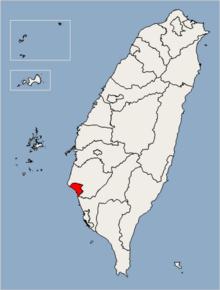 |
|
Tainan (traditional Chinese: 臺南/台南; simplified Chinese: 台南; pinyin: Táinán; Wade-Giles: T'ai-nan; Pe̍h-ōe-jī: Tâi-lâm, literally "Southern Taiwan") is the fourth largest city in Taiwan after Taipei, Kaohsiung, and Taichung. It is officially administrated as a provincial city of Taiwan Province in the Republic of China.
Tainan was established as the capital of Taiwan in 1661 and remained the capital until 1887 during the Qing Dynasty. In fact, "Tayoan"/"Tayouan" is the old name of Tainan and became the name of the island later. The city is famous for its abundant historical buildings and relics.
Contents |
History

Little is known about Tainan prior to the Dutch rule except that it was a settlement of Han Chinese immigrants in the 14th and 15th centuries and was named Tayoan (大圓, POJ: Tāi-ôan, from Sirayan). The Dutch established a trading post in 1624 at present-day Anping[2], and used it as a base of operation for a variety of business they conducted in the region. However, in 1661 the outpost was under siege by a fleet of Ming Dynasty remnants led by Koxinga, who established his own kingdom on Taiwan and renamed the city Tungtu (traditional Chinese: 東都; literally "East Capital") after the Dutch capitulated and withdrew from the island. In 1684, the Qing Dynasty conquered Taiwan and established Taiwan-fu (Taiwan Government) as the first official local government in Taiwan.[3]
William Campbell described the city in the 1870s:
As to Taiwan-fu itself, I may say that the brick wall which surrounds it is about fifteen feet in thickness, twenty-five in height, and some five miles in circumference. Lofty watch-towers are built over the four main gateways, and large spaces within the city are given to the principal temples and yamens—or quarters occupied by the civil and military mandarins. There is much need in Taiwan-fu for the carrying out of a City Improvement Scheme. Pleasant walks, no doubt, there are, and some of the shops have an appearance which is decidedly attractive; but, as a rule, the streets are narrow, winding, ill-paved, and odorous.[4]
Taiwan-fu was later renamed to Tainan-fu in 1885 when Taiwan was established as a province. Because it was formerly the capital of Taiwan, Tainan is also called Fu-cheng (traditional Chinese: 府城; literally "Government City"). Tainan also served as the capital of the Republic of Formosa after the Japanese took Taipei bloodlessly.

Tainan has been historically regarded as one of the oldest cities in Taiwan, and its former name, Tayoan, has been claimed to be the source of the name Taiwan. It is also one of Taiwan's cultural capitals, as it houses the first Confucian School/Temple, built in 1665 on the island[5], the remains of the Northern and Southern gates of the old city, and countless other historical monuments.
Tainan claims more Buddhist and Taoist temples than any city in Taiwan. Tainan City (台南市) is administratively a municipality of Taiwan Province of the Republic of China. It is surrounded by Tainan County to the north and east and the South China Sea to the west and south. Tainan's complex history of comebacks, redefinitions and renewals inspired its popular nickname "City of the Phoenix."[1]
Government
Administrative districts
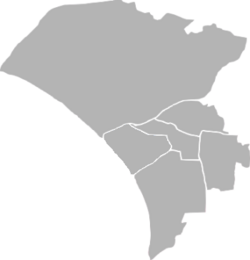
Tainan City currently has 6 districts: Anping, Annan, East, West-Central, South, and North districts.
Annan district was originally the An-Shun township of Tainan County, and was merged into Tainan City in 1946. In 2004, Central District and West District were merged into the new West-Central district.
Foreign relationships


Sister cities
The following places are sister cities to Tainan City[6]:
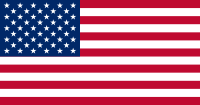
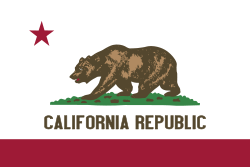 Monterey, California United States (1965)
Monterey, California United States (1965) Gwangju, South Korea (1968)
Gwangju, South Korea (1968)
 San Jose, California United States (1977)
San Jose, California United States (1977)
 Kansas City, Missouri United States (1987)
Kansas City, Missouri United States (1987) Pasay City, Philippines (1980)
Pasay City, Philippines (1980) Cavite City, Philippines (1980)
Cavite City, Philippines (1980) Tagaytay City, Philippines (1980)
Tagaytay City, Philippines (1980) Trece Martires, Philippines (1980)
Trece Martires, Philippines (1980)
 Columbus, Ohio United States (1980)
Columbus, Ohio United States (1980)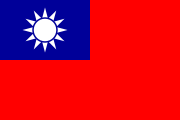 Kinmen, Republic of China (1981)
Kinmen, Republic of China (1981) Santa Cruz de la Sierra, Bolivia (1981)
Santa Cruz de la Sierra, Bolivia (1981) Port Elizabeth, Eastern Cape, South Africa (1982)
Port Elizabeth, Eastern Cape, South Africa (1982)
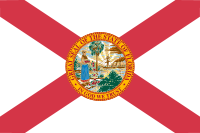 Orlando, Florida United States (1982)
Orlando, Florida United States (1982)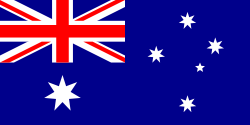 Gold Coast, Queensland, Australia (1982)
Gold Coast, Queensland, Australia (1982)
 Fairbanks, Alaska United States (1983)
Fairbanks, Alaska United States (1983)
 Oklahoma City, Oklahoma United States (1986)
Oklahoma City, Oklahoma United States (1986)
 Huntsville, Alabama United States(1986)
Huntsville, Alabama United States(1986)
 Carbondale, Illinois United States(1991)
Carbondale, Illinois United States(1991) Leuven, Belgium (1993)
Leuven, Belgium (1993) Ra'anana, Israel (1999)
Ra'anana, Israel (1999) Zacapa, Guatemala (2003)
Zacapa, Guatemala (2003) Elbląg, Poland (2004)
Elbląg, Poland (2004)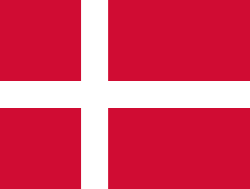 Ribe, Denmark (2005)
Ribe, Denmark (2005) Keçiören, Turkey (2005)
Keçiören, Turkey (2005) Cagayan de Oro City, Philippines (2005)
Cagayan de Oro City, Philippines (2005)
Friendship cities
Tainan City also celebrates friendly relationships with two other locations, although they are not considered official sister cities.
 Penghu County, Republic of China
Penghu County, Republic of China Sendai, Japan
Sendai, Japan
Transportation
Rail
Tainan Station is a major stop on the Western Line, with direct connections to Taipei, Kaohsiung, Taichung, Hsinchu and Keelung. There are also local trains to reach closer destinations.
High-Speed Rail
Tainan HSR Station is located just outside the city itself, in Gueiren township. Using the High Speed Rail system travellers can reach Taipei in under ninety minutes.
Mass Rapid Transit
There have been plans mooted for a Tainan MRT system. However, there has not been any progress on the issue for several years.[7]
To improve the communication with HSR station and save the expenses for MRT, a new rail brach line is being built. See zh:沙崙線(Shalun Line).
Road
National Highway Nos. 1 and 3 run close by and connect via local highways to the city itself. Tainan City has a total of 142.9km of highways, including national, local and rural highways.[8]
Air
Tainan Airport is located in the South District of the city. It is a domestic airport, currently operating flights to Kinmen and Makung.[9] Previously there were also services to Taipei's Songshan Airport, but these were dropped in light of falling revenues (generally agreed to be a result of the High Speed Rail commencing operation and rising fuel costs).[10]
Education


- National Cheng Kung University, one of the leading universities in Taiwan, is located in the East District. It is famous for its engineering programs. In 1931, NCKU was established as Tainan Technical College, located on the present Cheng-Kung Campus, with a total area of 183,000 square metres. As the number of colleges expanded, it was upgraded to a provincial university in 1956, then national university in 1971.[11] Today, National Cheng Kung University serves nearly 21,000 students through 9 colleges, 39 departments, and 49 graduate institutes.[12]
- Tainan Theological College and Seminary (台南神學院) was established in 1876 by Thomas Barclay.[13]
- Chang Jung Christian University is a private university affiliated with the Presbyterian Church in Taiwan. CJU offers masters and doctoral degree programs and aims to promote fraternity, justice, and service for Taiwan. It is located south of the city, in Gueiren.
- Southern Taiwan University of Technology, founded in 1969, is located near the northeastern border of Tainan City, within a 30-minute driving distance from the Tainan Airport.
- The Tainan University of Technology (台南科技大學) is a private university founded in 1964. The university offers graduate degrees in music, visual art, and applied sciences. The main campus actually sits in Tainan County just outside the official city limits.
Senior high schools
Public
- National Tainan First Senior High School
- National Tainan Second Senior High School
- National Tainan Girls' Senior High School
- National Chia-Chi Girls' Senior High School
- National Tainan Commercial Vocational School
- The Affiliated Senior Industrial Vocational Continuing Education High School of National Cheng Kung University
- National Tainan Marine & Fishery Vocational School
- Municipal Tainan Nan-Ning Senior High School
- Municipal Tainan Tu-Cheng High School
Private
- Feng-Ho Senior High School
- Chang Jung High School
- Sheng Kung Girls' High School
- Nan Ying Vocational High School of Business & Technology
- Salesian Technical School
- Chang Jung Girls' Senior High School
- Deguang Catholic Girls' High School
- Kuang Hua Girls' Senior High School
- Tainan Liuhsin Senior High School
- Kuen-Shan Senior High School
- Ying-Hai High School
Politics
The city has historically been seen as a powerbase for the Democratic Progressive Party. However, in the most recent presidential elections (2008), a narrow majority of the city's residents voted for the eventual winner, Ma Ying-jeou of the Kuomintang.
City mayor
2001 Mayoral elections
Hsu Tain-Tsair of the Democratic Progressive Party was elected with 43.23% of the vote. His closest rival was the Kuomintang legislator Chen Rong-sheng, who garnered 37.40%.
2005 Mayoral elections
In 2005 Mayor Hsu was re-elected, polling 45.65% to Chen Rong-sheng's 41.40%.
Presidential elections
A majority of city residents have voted for the winning candidates in every presidential election since the position was first chosen by popular vote in 1996.
1996 Presidential election
In common with every other city and county in the Republic of China, with the exception of Nantou, a majority of Tainan residents voted for eventual winner Lee Teng-hui and vice-president Lien Chan.
2000 Presidential election
| Party | Candidate | Votes | Percentage | ||
|---|---|---|---|---|---|
| President | Vice president | ||||
| Independent | James Soong | Chang Chau-hsiung | 114,299 | 27.53% | |
| Kuomintang | Lien Chan | Vincent Siew | 107,679 | 25.93% | |
| New Party | Li Ao | Elmer Fung | 580 | 0.14% | |
| Independent | Hsu Hsin-liang | Josephine Chu | 1,408 | 0.34% | |
| Democratic Progressive Party | Chen Shui-bian | Annette Lu | 191,261 | 45.06% | |
2004 Presidential election
| Party | Candidate | Votes | Percentage | ||
|---|---|---|---|---|---|
| President | Vice president | ||||
| Democratic Progressive Party | Chen Shui-bian | Annette Lu | 251,397 | 57.77% | |
| Kuomintang | Lien Chan | James Soong | 183,786 | 42.23% | |
2008 Presidential election
| Party | Candidate | Votes | Percentage | ||
|---|---|---|---|---|---|
| President | Vice president | ||||
| Democratic Progressive Party | Frank Hsieh | Su Tseng-chang | 216,815 | 49.29% | |
| Kuomintang | Ma Ying-jeou | Vincent Siew | 223,034 | 50.71% | |
Notable natives

A non-exhaustive list of famous people born in Tainan, educated there, prominent in the life of the city, or otherwise associated with the city.
- Momofuku Ando (安藤百福) (1910–2007), founder of Nissin Foods and inventor of instant noodles[14]
- Thomas Barclay (1849–1935), Christian missionary, lived in the city from 1875 to 1935
- William Campbell (1841–1921), Christian missionary, lived in the city from 1871 to 1917
- George Chang (張燦鍙) (1936–), politician, former mayor of Tainan (1997–2001)
- Chin-Feng Chen (陳金鋒) (1977–), first Taiwanese-born player to play Major League Baseball
- Chen Wei-Ling (陳葦綾), 2008 Olympic bronze medal-winning weightlifter
- Chen You-hao (陳由豪), former businessman, fugitive sought for embezzlement, currently resident in the United States
- Mao Gao-wen (毛高文) (1936–), chemist, former president of National Tsinghua University (1981–1987) and Minister of Education (1987–1993)
- Hsu Shih-Hsien (許世賢) (1908–1983), first female Taiwanese PhD
- Chin-Lung Hu (胡金龍), MLB infielder for the Los Angeles Dodgers
- Jutoupi ((1966–), recording artist
- Kao Ching-yuen (高清愿) (1929–), businessman, founder and chairman of Uni-president
- Hong-Chih Kuo (郭泓志), MLB pitcher for the Los Angeles Dodgers
- Tai-Yuan Kuo (郭泰源), retired pitcher for the Seibu Lions, foreign player with the most wins in Nippon Professional Baseball history
- Ang Lee (李安) (1954–), Academy Award–winning film director
- Chen-Yuan Lee (李鎮源) (1915–2001), pharmacologist and political activist, famous for research on snake venom
- Lien Heng (連橫) (1878–1936), historian, writer of The General History of Taiwan
- En-Yu Lin (林恩宇), baseball pitcher currently playing for Tohoku Rakuten Golden Eagles
- Lin Hsin-i (林信義) (1946–), businessman and politician, Minister of Economic Affairs (2000–2002), Vice Premier (2002–2004)
- Lin Mosei (林茂生) (1887–1947?), first Taiwanese philosophy PhD, academic, educator and calligrapher thought to have been killed following the 228 Incident.
- Ong Iok-tek (王育德) (1924–1985), scholar and authority on the Taiwanese language
- Judy Ongg (翁倩玉) (1950–), actress, singer, author and artist
- Shi Wen-long (許文龍) (1928–), businessman, founder of Chi Mei Corporation
- Su Nan-cheng (蘇南成) (1936–), politician, former mayor of Tainan (1977–1985) and advisor to Chen Shui-bian
- Chien-Ming Wang (王建民), MLB pitcher for the New York Yankees
- Wu Hui Ju (吳蕙如), archer and also a member of the team that won the bronze medal for Chinese Taipei in 2004 Summer Olympics in the women's team archery competition
- Jacky Wu (吳宗憲) (1962–), entertainer and talk-show host
Sports

Tainan is home to the Uni-President Lions, who play their home games at the Tainan Municipal Baseball Stadium.[15] It is also the birthplace of Chien-Ming Wang, Hong-Chih Kuo, Tai-Yuan Kuo, En-Yu Lin, and many other prominent Taiwanese baseball players.
See also
- Administrative divisions of the Republic of China
- Township (Taiwan)
- List of cities in the Republic of China (Taiwan)
- List of mayors of Tainan
- Republic of China
References
- ↑ 1.0 1.1 Tainan University of Technology official site
- ↑ "Anping Harbor National Historical Park". Tainan City Government. Retrieved on 2008-08-19.
- ↑ "Taiwan Fu". Harvard University Faculty of Arts and Sciences. Retrieved on 2008-08-19.
- ↑ William Campbell (1913). Sketches of Formosa. London: Marshall Brothers. pp. 16-17.
- ↑ "Tainan Confucian Temple". Council for Cultural Affairs. Retrieved on 2008-08-19.
- ↑ "Sister Cities". Tainan City Government. Retrieved on 2008-08-19.
- ↑ "MRT Plans" (in Chinese). Bureau of High Speed Rail. Retrieved on 2008-08-20.
- ↑ "2005 statistics". Tainan City Government. Retrieved on 2008-08-19.
- ↑ "Airlines". Tainan National Airport. Retrieved on 2008-08-20.
- ↑ "FAT to sell investments to cover costs", Taipei Times (2008-03-01). Retrieved on 2008-08-20.
- ↑ "Brief History". National Cheng Kung University. Retrieved on 2008-08-20.
- ↑ "Organization". National Cheng Kung University. Retrieved on 2008-08-20.
- ↑ "Introduction". Tainan Theological College and Seminary. Retrieved on 2008-08-20.
- ↑ "Inventor of the Week: Momofuku Ando". MIT. Retrieved on 2008-08-19.
- ↑ "Parking near the Municipal Stadium" (in Chinese). Uni-President Lions. Retrieved on 2008-08-20.
External links
- Tainan travel guide from Wikitravel
- Tainan City Government Official Website (English)
- Tainan City Travel Information
- Tainan City Dynamic Bus Information System
- International students @ Tainan English city-guide
- The Confucian temple in Tainan
|
||||||||||||||||||||||
|
||||||||||||||||||||||||